Customer Service Lines Open Mon-Fri 9am-6pm



[ Contact Us ]
Need Help? Calling from a mobile please call 0151 647 7556
0800 195 4926Do you have a question? or need help?
Customer Service Lines Open Mon-Fri 9am-6pm, Closed Saturday & Sunday
The electric car market was established in the UK around 20 years ago. As we approach 2022 the EV market is evolving at quite some rate.
Mainstream automobile makers joined the new generation of electric car production, which includes Mercedes-Benz, Nissan, BMW, and Toyota to name a few. 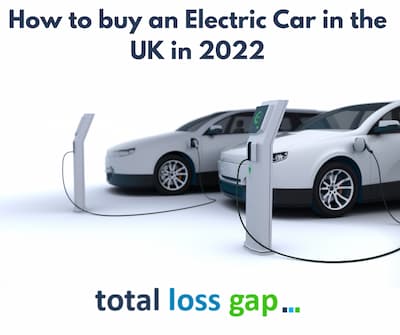
Carmakers Tesla has an enormous following in the USA and China offering executive electric cars. Tesla is now the most valuable carmaker in the world. Perhaps an indication as to how rapidly the world is turning to electric cars as a matter of choice.
Electric cars are vehicles that run on electricity supplied by a battery and driven by electric motors. There is no combustion engine at all in the vehicle.
Pure electric cars are not like petrol or diesel cars; they do not require using gasoline or diesel fuel to be operated, thus helping ease some of the pollution caused by vehicles with a combustion engine. They're powered entirely on electricity from their onboard batteries which can either be charged at charging stations or from an outlet at home.
Electric cars are also known as EVs - short for 'Electric Vehicles'.
There is also a range of different types of electric cars, like plug in hybrids and mild hybrid cars. For more on the different types of EV's please read our Guide to Electric Vehicles.
Should you buy an electric car? Well like anything, there are considerations either way. In our guide, we give you some ideas on what you should be thinking about.
There is a general impression that electric cars are relatively more expensive than petrol or diesel equivalents. That may be true, and more on that subject can be found below.
But that is only part of the story.
A car with high fuel consumption can be expensive, but its value may change over time in some places. Charging batteries for electric cars can cost far less than utilising fuel-filled vehicles.
Electric vehicles may be funded through government grant payments up to £3,000 for an electric car's initial investment.
There are a number of tax implications when driving a car. These include VAT on the purchase and on going running costs, as well as taxes you pay company car tax on your wages for using a company car.
Drivers pay for companies to be reimbursed for their ‘benefit in kind' (BIK) tax. Unlike petrol and diesel cars, they may be worth over £200,000 per year yet face little or no BIK tax for using an electric model.
In 2020-21 tax year the BIK tax for low emission cars (classed as less than 50g/km) was 0%. In 2021-22 that rises to 1% and then in 2022-23 to 2%. Still far less than cars with a combustion engine.
Electric vehicles are able to avoid road tax and therefore are not subject to taxation in that way either.
It's logical to expect cleaner air and reduced emissions with EV's. Even when electric vehicles are built and generated, electric vehicle production produces emissions that cause climate change, manufacturers also take steps to fight against these emissions and utilise the resulting renewable sources as well.
Europol estimates the emissions reductions could be as much as 60% from the gasoline car during its lifetime.
Electric cars tend to operate quietly, accelerate impressively and several have very fast speeds. 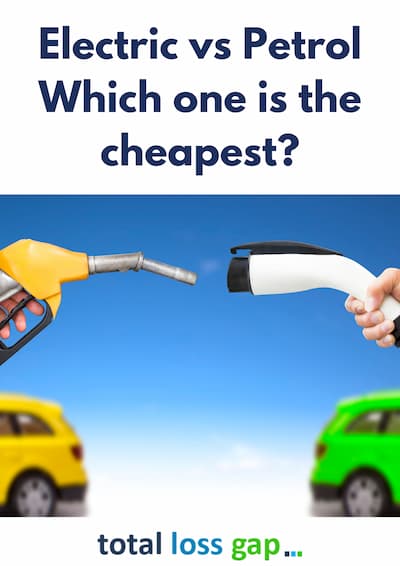
It is comparatively quiet since an electric motor has fewer movable parts than a motor. They are faster because a battery provides all the torque after hitting a pedal.
Petrol engines can only operate with their engines at comparatively quick speeds.
Electric motoring can usually also become more spacious - the car does not use bulkier wheels and gears.
A full battery electric vehicle produces no emission of exhaust pipes and provides immense advantages in terms of improving ambient air quality in urban areas.
Increasing amounts of public charge points are providing a better network for electric car owners in the UK. However, if the country is to move towards eliminating combustion engine cars then a continued and vast improvement in availability needs to continue.
Long journeys will require planning as electric car drivers will need to stop to recharge at some point. This is because even the best electric cars still provide relatively short-range figures. It has to be said, however, these ranges are extending all the time.
Electric chargers can be accessed in all kinds of different places. These include traditional petrol stations, as well as on-street parking spaces and retail units like pubs and restaurants.
Many office buildings are also installing charging points for employees to top up their electric cars in off-street parking spaces.
Finally, home charging is being addressed also. Retrofit charging kits can be assisted by grants. The UK Government is also pressing forward with plans that all new build houses must-have home charging points built-in.
Newer fast charging devices with speeds from 150kW and up to 100 miles are expected around the world.
Up front costs can be an issue for electric car buyers. Comparing the purchase price of an EV compared to the cost of an equivalent car using an internal combustion engine can provide quite a difference.
For example, a basic Renault Clio has a MRRP of £18,290 at time of writing. Compare that to a base Renault Zoe MRRP of £27,595 after the latest Plug In Grant from the UK Government.
That is quite some difference.
You must also consider ongoing running costs when you look to buy an electric car. They may cost more to buy up front but all indications are that they will be cheaper to service and charge than a combustion-driven car would be to service and fuel.
Electric car insurance rates are usually significantly increased owing to comparatively unknown quantities and the company also has little longer-term knowledge regarding repairs.
As the electric vehicle market grows the cost will likely decrease.
The charging time on a 50kW auto starts after six hours. That does not bother most people because most electric automobile drivers make routine longer trips in their cars. 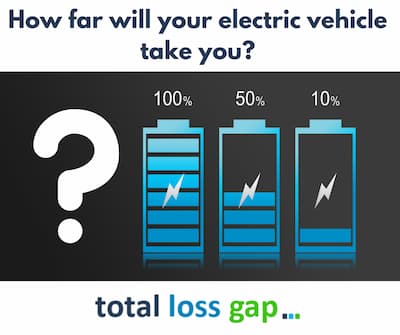
Many electric automobile owners do not consider full charger hours until they return home.
If you buy an electric car you may become fixated with the range remaining on the vehicle. Advancing battery technology has done much to extend battery life and provide a better maximum range for the vehicle. However, battery power can be impacted by such things as a drop in temperature. Cold weather can see the range on an electric car drop significantly.
This can be disturbing to a driver to see the car's range drop suddenly. Even the best-laid plans for your route can be thrown into turmoil by a drop in temperature.
In reality, this is not really too different to using a car with a conventional engine. You can underestimate the amount of petrol or diesel you need so seeking out a petrol station for an unplanned fuel stop may be required.
The key is not to get too hung up on the range showing on your car. Just make sure you have flexibility in your plans and know where you can get a quick charge if needed.
Charging your EV at home is as easy as plugging it into an electrical outlet in your garage. You can use a standard 120-volt outlet or install a 240-volt charging station.
It will be worth checking your electricity tariff to ensure you are getting the maximum reduced running costs. The savings compared to the fuel costs on petrol cars could be significant.
Most electric cars have a range of at least 80 to 100 miles between charges, so you may need to charge your electric car more than once per day depending on your driving habits and requirements.
Once you are in a rhythm in running your electric car you may find it the perfect car compared to a petrol or diesel counterpart. More conventional models could be expensive compared to an electric car running at maximum efficiency.
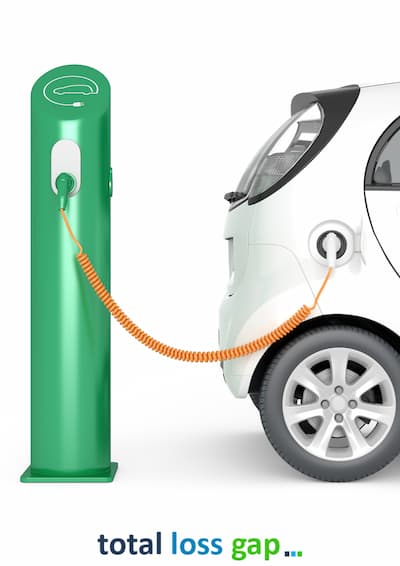
Charging your electric vehicle at home is easy, but what do you do if you need to charge it when you’re not at home? Many public charging stations are available, and most EV drivers find that they rarely have to search for a place to plug in their electric car.
There are three types of public charging stations:
It’s important to note that not all-electric cars can use DC fast chargers – those that can are typically called “DC fast-charge compatible.”
Many public charging stations are free to use, while others may charge a nominal fee. You can find charging stations through websites like PlugShare and ChargePoint, or by using your car’s built-in charging station locator.
Electric vehicles do produce no CO2 or particulates and are therefore not generated from vehicles. The sustainability of electric trucks and other vehicles is highly dependent upon the fuel from which the charge takes place. This is still an issue that the world is moving to change. You can have an electric bus charged from a petrol or diesel generator, for example.
Over time, as our electricity needs are met more by renewable sources like, wind, solar and tidal, the sustainability aspect of using an EV will become more clear.
Currently in the UK, the cheapest new electric car seems to be the Skoda CitiGoe iV at around £15,000. This is a small city car hatchback with a range of around 135 miles and a rapid charge capability of 80% battery in an hour.
Other small, city car examples would be the Seat e-Mii Electric and the Fiat 500e.
If you are looking for something a little bigger then the Golf ID.3 Pure is around £25,000 and the Peugeot e-208 just over £26,000.
If you are looking for an electric SUV the MG can provide the ZS EV at less than £28,500. Another similar SUV is the Hyundai Kona electric, although it is a little more expensive.
Automakers should be eligible to apply for car grants, which help bring the purchase costs very much in line with the equivalent petrol or diesel car. With ongoing running costs lower this could make EV ownership attractive as owners save money with their electric car purchase.
A study by EDF Energy compared the running costs of an electric car and a petrol car over 100 miles. It was stated that it would cost around £5 to charge the electric vehicle for that distance. This compared favourably to the £12 it would cost for the petrol car to cover the same 100 miles distance.
Whether you are looking for a new EV or the used market, there is a maturing electric vehicle market evolving. Many manufacturers are concentrating on switching their entire new range to EV's. The market for second-hand electric cars is also gaining pace.
If you are looking to buy electric cars then there are a number of popular models you may want to consider. These include:
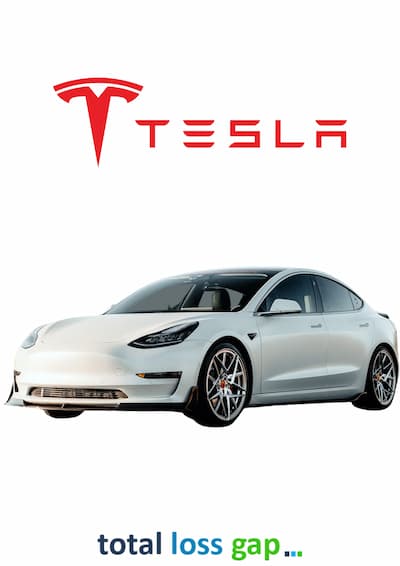
The Tesla Model 3 is an all-electric luxury executive four-door saloon designed by Tesla. It is the company's first mass-market electric car and went into production on July 7th 2017.
The standard Model 3 will have a range of at least 263 miles (the Long Range version is capable of 353 miles) and will be capable of accelerating from 0 to 60 mph in 5.1 seconds. The Model 3 is expected to have a base price of £42500 in the UK currently. This price is the standard RRP, before any government incentives.
The Performance level Model 3 is currently priced at £55,500 but will provide an increased range of 315 miles and a 0-60mph time of an incredible 3.5 seconds.
The Tesla Model 3 is the best selling plug-in electric car (PEV) from 2018-2020 inclusive.
The Nissan Leaf is the world's first mass-produced, fully electric car. It launched in Japan on December 2, 2009, and was released to the US market on December 22nd of the same year. The European version was released in March 2010.
Nissan's original Leaf became the most efficient electric vehicle in existence with ranges of around 80km in total. The Leaf Mk 2 shifted the range towards those of petrol vehicles by 2020.
The Leaf is a 5-door hatchback that seats 5 and has a range of between 151 and 226 miles on a single charge.
The Leaf takes about 8 hours to recharge from a standard plug in home charger.
The Leaf has a top speed of 90 mph.
To date, the Leaf has accounted for over 300,000 sales globally.
The Renault Zoe is a powerful car in small form, which is very comfortable to travel. Starting from just over £27,000, the supermini combines high-speed performance which goes beyond key rivals. The latest update to the Zoe included the new Clio infotainment system, adding an overall more familiar feel to the interior. The product lineup has many features geared toward electricity vehicles with several price points. The system increases performance, which is also bolstered by its powerful charging capacity via its 50kW rapid discharge technologies.
Evolved from the stylish Fiat 500, the 500e provides all the character you get with the famous car plus all the modern advantages of a fully electric city car.
The 500e provides, dependent on trim level chosen, with 115 or 119 maximum mileage range. It also provides a degree of autonymous driving if and when that technology is allowed.
At a fraction under £20,000 is the 500e the perfect car for city living?
Audi has long been known for sports and performance vehicles. The e-tron GT continues that reputation in to the new world of electric cars.
A twin electric motor power unit provides 598bhp as standard. Use the two second over boost feature and the power is increased to 646bhp.
All this translates to a 0-62mph time of 3 seconds, and 30-70mph of just 2.7 seconds.
By any standards, a very quick car!
Price? Anywhere between £82k and £135k plus, depending on specification.
The I Pace is a full electric crossover SUV produced by Jaguar Land Rover. The I Pace is a concept car released at the Los Angeles Motor Show in March 2016. It has twin electric motors capable of producing 395 horsepower and accelerating from 0-62 mph in 4.8 seconds. The top speed of the I Pace is 124 mph, with a range of 246 miles on one charge.
The I Pace is multi award winning SUV, including World and European Car of the Year in 2019, as well as Best Design and Best Green Car.
Prices start at just under £65,000 at time of writing.
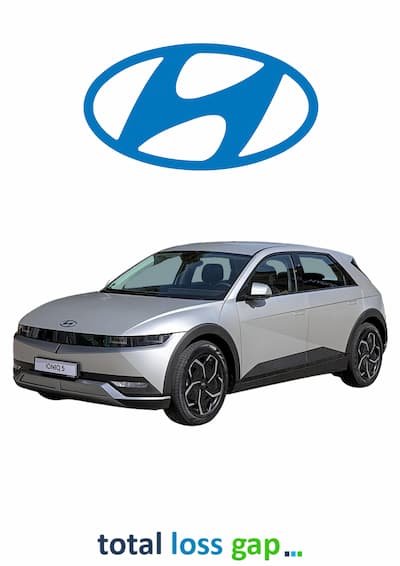
Hyundai and it's sister brand Kia have been at the forefront of all kinds of electric car innovation for a number of years. From mild and plug in hybrid models, the Korean manufacturers are now leading the way with full electric car sales.
The latest off the line with full electric power is the Hyundai Ioniq 5. Such is the design and practicality of the Ioniq 5 it has received much acclaim and praise from the motoring press. This includes the prestigious AutoExpress Car of the Year award for 2021.
Ioniq-5 comes with two battery options and three power outputs. The 58kWh battery has 168bhp and delivers a top range of 238 miles. The 73kWh battery provides either a 214bhp option with a 280 maximum range or a more powerful 301bhp option with a maximum 267 miles between charges.
Another fantastic feature is that the Ioniq 5 supports 800V charging. This means you can get back to 80% charge in around 18 minutes.
The Hyundai Ioniq 5 pricing starts at just over £36,000 for the base model and rises to around £50,000 for the top of the range.
What if you could lower your carbon footprint, save money on fuel and maintenance costs, reduce the stress of driving in congested city centres?
The future is electric.
Electric cars are now available throughout the UK, with a wide range of models to suit every need and budget.
We hope our guide has been helpful to you, whether you take the plunge for full electric or even a stepping stone of mild or plug-in hybrid for your next car.